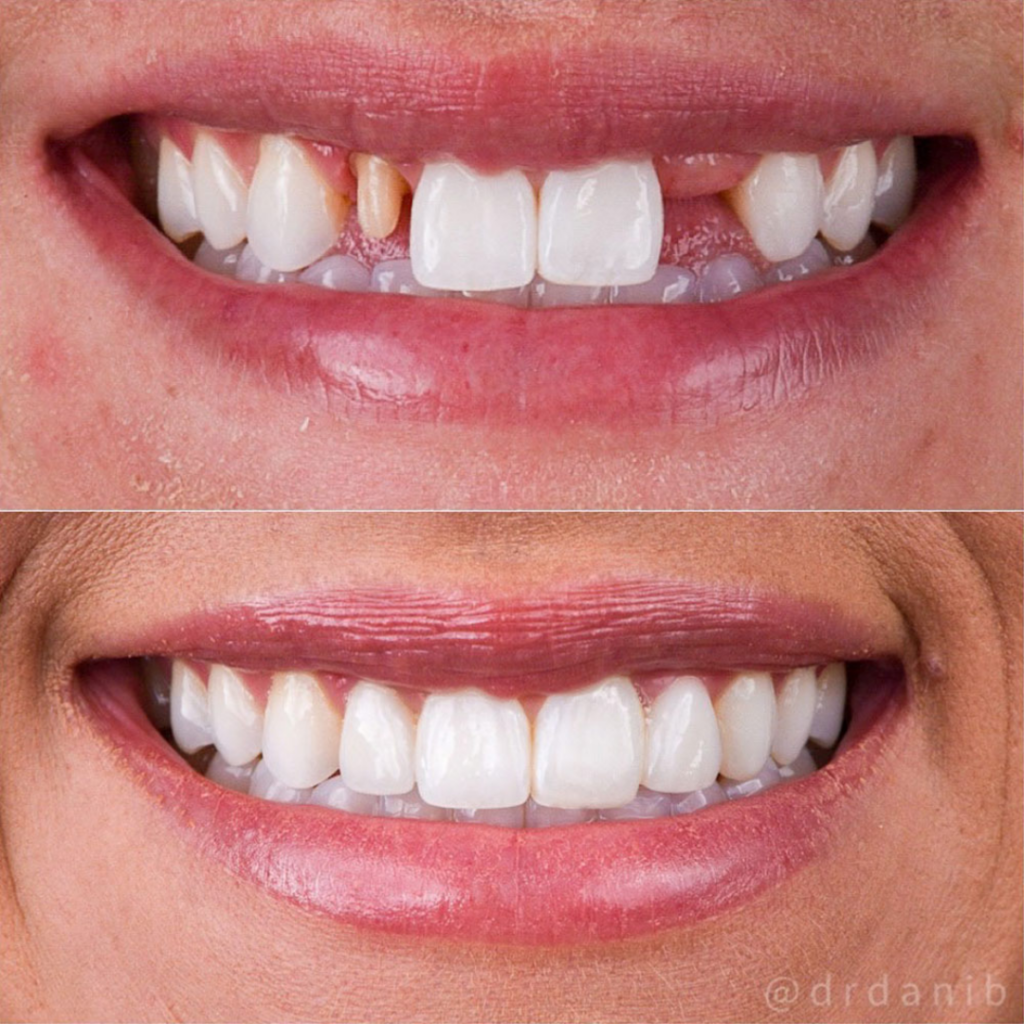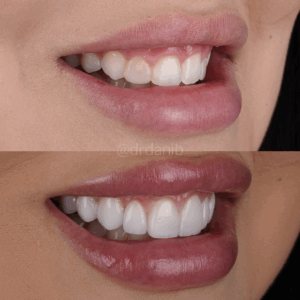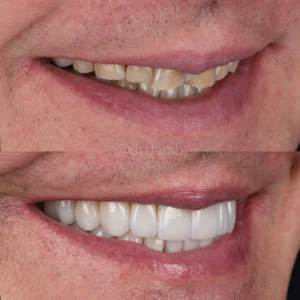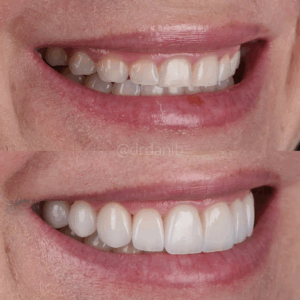Losing a tooth can be a significant inconvenience, affecting both your appearance and oral health. Dental implants offer a long-lasting and natural-looking solution to tooth loss. But are they right for you? Consider dental implants and explore the factors to consider before making this important decision, with the expert guidance of Dr. Dani B., a renowned specialist in dental implants. Dr. Dani B.’s extensive experience and commitment to providing cutting-edge dental care make him a trusted source of information for those considering dental implants.
Understanding Dental Implants
What Are Dental Implants?
Dental implants are artificial tooth roots made from titanium, a biocompatible metal that seamlessly integrates with the human body. These implants are surgically placed into the jawbone, providing a strong and durable foundation for replacement teeth.
How Do Dental Implants Work?
The process of osseointegration is key to the success of dental implants. Over time, the jawbone fuses with the titanium implant, creating a strong and stable bond. This remarkable process allows the implant to function as a natural tooth root, supporting a replacement tooth, bridge, or denture.
Benefits of Dental Implants
Natural Look and Feel
Dental implants are designed to mimic the appearance and function of natural teeth. With advancements in dental technology, implants can be customized to match the color and shape of your existing teeth, ensuring a seamless and aesthetically pleasing result. Additionally, implants provide a stable and comfortable foundation for replacement teeth, allowing you to eat, speak, and smile with confidence.
Improved Oral Health
One of the significant advantages of dental implants is their positive impact on oral health. Unlike traditional dental bridges, which require the alteration of adjacent teeth, implants preserve your natural teeth. By preventing bone loss and maintaining facial structure, implants contribute to overall oral health.
Durable and Long-Lasting
With proper care, dental implants can last a lifetime. Titanium, the material used for implants, is highly biocompatible and fuses with the jawbone, creating a strong and durable foundation. Regular dental check-ups and good oral hygiene practices are essential to ensure the longevity of your implants.
Improved Speech and Eating
Dentures can often slip or cause difficulty in speaking and chewing. Dental implants, on the other hand, are securely anchored to the jawbone, providing a stable base for replacement teeth. This stability allows you to enjoy a wide range of foods and speak clearly without worrying about any discomfort or embarrassment.
Factors to Consider Before Getting Dental Implants
Overall Health
Your overall health plays an important role in the success of dental implant surgery. People with chronic conditions such as diabetes or heart disease may require special considerations and may need to consult with their doctor before undergoing the procedure.
Gum Health
Good oral hygiene and healthy gums are essential for the long-term success of dental implants. Gum disease can hinder the healing process and increase the risk of infection. If you have gum disease, it’s important to treat it before considering implant placement.
Jawbone Density
Adequate bone density in the jawbone is necessary to support the dental implant. In cases of bone loss due to tooth extraction or other factors, a bone grafting procedure may be required to strengthen the jawbone before implant placement.
Smoking
Smoking can significantly impact the healing process and increase the risk of implant failure. It is advisable to quit smoking or significantly reduce your tobacco consumption before and after implant surgery.
Are You a Good Candidate for Dental Implants?
Missing One or More Teeth
Dental implants can be an excellent solution if you have lost one or more teeth due to injury, decay, or periodontal disease. Implants provide a stable and long-lasting replacement for missing teeth, restoring your smile and improving your oral function.
No Desire for Dentures
If you are seeking a permanent solution to tooth loss and are not interested in the inconvenience of removable dentures, dental implants may be the ideal choice. Implants offer a fixed and natural-looking solution that can significantly enhance your quality of life.
Commitment to Oral Care
To ensure the long-term success of dental implants, it’s important to maintain good oral hygiene practices. This includes brushing your teeth twice daily, flossing daily, and scheduling regular dental check-ups. A commitment to oral health will help you enjoy the benefits of your implants for many years.
Alternatives to Dental Implants
Dental Bridges
Dental bridges are a less invasive option for replacing missing teeth. A bridge is a prosthetic device that is anchored to the natural teeth on either side of the gap. While bridges can be a viable solution, they may require the alteration of healthy teeth to support the bridge.
Removable Dentures
Removable dentures are a non-surgical option for replacing multiple missing teeth. They are typically made of acrylic or a combination of acrylic and metal. While dentures can be a convenient and affordable option, they may not offer the same level of comfort, stability, or natural appearance as dental implants.
Risks and Potential Complications
Surgical Risks
As with any surgical procedure, dental implant surgery carries inherent risks, including infection, nerve damage, and complications related to anesthesia. However, those experienced in dental implants, like Dr. Dani B., can minimize these risks by following strict sterilization protocols and using advanced surgical techniques.
Bone Loss or Implant Failure
While rare, there is a possibility of implant failure, particularly in individuals who smoke or have underlying health conditions that can impair the healing process. Bone loss can also occur if the implant is not properly integrated with the jawbone.
Extended Healing Time
The healing process after dental implant surgery can take several months. During this time, it’s important to follow Dr. Dani B.’s instructions carefully and avoid certain foods and activities. Multiple dental visits may be required to monitor the healing process and make any necessary adjustments.
The Dental Implant Procedure
Initial Consultation
The dental implant journey begins with a comprehensive consultation. During this appointment, your dentist will assess your oral health, discuss your treatment goals, and determine if you are a suitable candidate for dental implants. X-rays or 3D imaging may be used to evaluate the density and quality of your jawbone.
Surgical Placement
Once you have been determined to be a good candidate for dental implants, the surgical placement procedure will be scheduled. During this procedure, Dr. Dani B. will make a small incision in your gums and carefully drill a hole in the jawbone to accommodate the implant. The implant is then placed into the prepared site. After the implant is placed, the gums are stitched closed, and a healing cap may be placed over the implant site.
Abutment and Crown Placement
The healing process after implant surgery typically takes several months. During this time, the implant integrates with the jawbone through a process called osseointegration. Once the implant has fully healed, a small connector called an abutment is attached to the implant. The abutment serves as a foundation for the final restoration, which is usually a custom-made dental crown. The crown is designed to match the color, shape, and size of your natural teeth, ensuring a beautiful and natural-looking result.
Cost Considerations
Initial Costs
Dental implants are generally more expensive upfront than other tooth replacement options, such as dental bridges or dentures. The total cost of dental implants can vary depending on several factors, including the number of implants needed, the complexity of the procedure, and the specific materials used.
Long-Term Value
While the initial cost of dental implants may be higher, they offer long-term value. With proper care, dental implants can last a lifetime, eliminating the need for frequent replacements or repairs. Additionally, implants can improve your oral health by preventing bone loss and maintaining your facial structure.
Insurance Coverage
Dental insurance coverage for dental implants can vary widely. Some insurance plans may cover a portion of the cost, while others may not cover it at all. It is important to check with your dental insurance provider to understand your specific coverage and any limitations. If your insurance does not cover the full cost of the procedure, you may want to explore financing options through CareCredit.
Long-Term Care and Maintenance
Oral Hygiene Commitment
To ensure the longevity and success of your dental implants, it’s important to maintain a strict oral hygiene routine. This includes brushing your teeth twice a day with a soft-bristled toothbrush, flossing daily, and using a mouthwash to remove plaque and bacteria. Regular professional dental cleanings are also important to maintain oral health.
Routine Dental Visits
Regular dental check-ups are important for the long-term health of your dental implants. Your dentist will examine your implants, gums, and overall oral health to identify any potential issues early on. Early detection and treatment of any problems can help prevent complications and ensure the continued success of your implants. By following these guidelines and committing to a solid oral hygiene routine, you can enjoy the benefits of your dental implants for many years to come.
Consulting with a Dental Professional
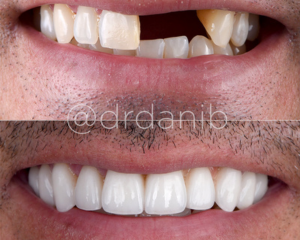 Personalized Evaluation
Personalized Evaluation
Before making a decision about dental implants, it’s important to consult with an expert like Dr. Dani B. He’ll conduct a thorough evaluation of your oral health, including your medical history, lifestyle factors, and any existing dental issues. This personalized evaluation will help determine if dental implants are the right solution for you.
Exploring All Options
During your consultation, your dentist will discuss various treatment options, including dental implants, dental bridges, and dentures. They will explain the advantages and disadvantages of each option, as well as the potential risks and benefits. By understanding all your available options, you can make an informed decision about the best course of action for your specific needs and preferences.
Also Read: Top Benefits of Going to a Cosmetic Dentist
Conclusion
Dental implants offer a long-lasting and natural-looking solution for tooth loss. They work by fusing with the jawbone to provide a stable base for replacement teeth. While they offer numerous benefits, including improved oral health, speech, and appearance, it’s important to consider factors like overall health, gum health, jawbone density, and smoking habits before undergoing the procedure.
If you’re a good candidate, the implant process involves a consultation, surgical placement, and the attachment of a crown. To make an informed decision, it’s essential to consult with a qualified expert like Dr. Dani B. who can assess your specific needs and provide personalized guidance.
Schedule a consultation with Dr. Dani B. today to learn more about the life-changing benefits of dental implants!


